Top 10 Questions To Ask A Mortgage Broker (Before You Commit)
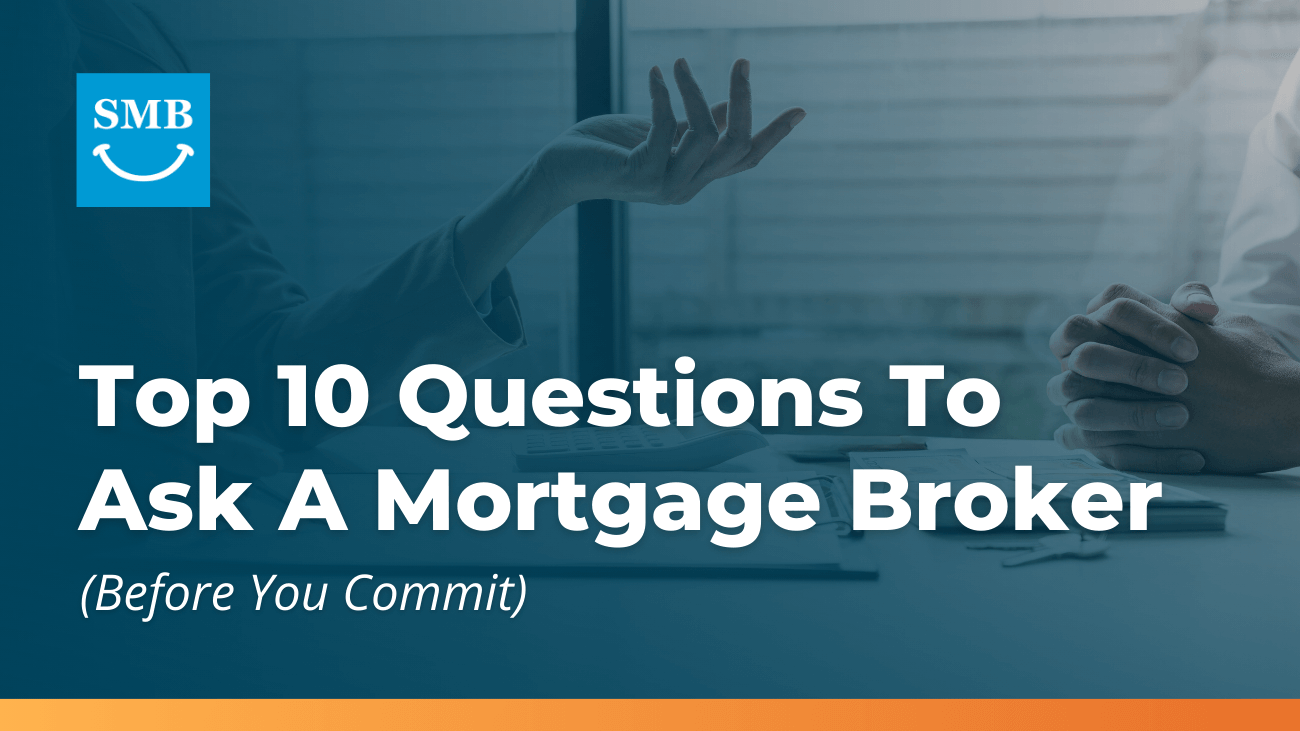
This article was originally published on October 22, 2022. It has been updated for publication on January 22, 2025.
Buying a home isn’t just about choosing the right property. It’s about making sure the financing behind it doesn’t quietly work against you.
Most buyers focus on interest rates because that’s the loudest number in the conversation. More experienced buyers focus on structure: how the loan is built, how flexible it is over time, and whether it supports their position in a competitive market.
The right mortgage broker doesn’t just help you get approved. They help you avoid mistakes that don’t surface until months or years later.
Before you commit to working with anyone, these are the questions to ask a mortgage broker.
1. How Does the Mortgage Process Work?
A broker should be able to explain the mortgage process in plain language, not industry shorthand.
The process begins with a loan application, which involves submitting financial documents and meeting credit qualifications set by lenders. You want to understand what happens after you apply, how underwriting works, when documents are reviewed, and where delays typically occur.
The goal isn’t perfection. It’s predictability. When you know how the process unfolds, you’re far less likely to be caught off guard when timelines tighten or conditions come back.
During underwriting, lenders will review your financial information and assess your creditworthiness. Lenders have specific credit score requirements that impact your eligibility for a mortgage and the terms you may receive.
The mortgage application process can take anywhere from 45 to 60 days from application to closing.
Clear process explanations are usually a signal of clean execution. If a broker struggles to explain the steps, that confusion tends to show up again later when decisions matter.
2. How Experienced Are You and Your Team?
You’re not hiring a company name. You’re trusting the people who work for that company with the handling of your loan.
Experience matters most when a deal stops being straightforward, which is often the rule rather than the exception. Ask who manages your file day to day, how accessible they are, and how long they’ve been structuring loans in competitive markets like Seattle.
A seasoned team doesn’t just respond to problems. They anticipate them early enough to keep your deal moving without drama.
3. Which Type of Loan Should I Have?
A mortgage isn’t a product you pick off a shelf. It’s a structure that should reflect how long you plan to stay in the home, how stable your income is, and how much flexibility you want if rates change.
There are various types of mortgages that offer different terms and guidelines based on your credit score and finances. A strong broker will ask detailed questions before recommending anything and will clearly explain the tradeoffs between different loan types, such as:
Conventional loans
These are not government-insured and typically require higher credit scores and down payments. A 30-year conventional fixed-rate loan is the most common type of mortgage.
Fixed-rate mortgages
These loans maintain the same interest rate throughout the loan term, providing stability and predictable payments.
Adjustable-rate mortgages (ARMs)
ARMs have interest rates that change over the life of the loan, which means your rate can go up or down based on the market. They often start with lower initial rates but carry the risk of future increases.
FHA loans
Backed by the Federal Housing Administration, FHA loans have lower credit score minimums and down payment requirements than most conventional loans.
VA loans
These are backed by the U.S. Department of Veterans Affairs and are available to veterans, military personnel, and surviving spouses, often with no down payment and lower interest rates.
If recommendations come before questions, that’s usually a sign the loan is being fit to a template rather than to you.
4. What Rate Do I Qualify For?
Interest rates aren’t universal, and they aren’t guesses. They’re determined by factors like credit profile, down payment, loan type, occupancy, and market conditions at the time you lock.
Lenders have specific credit qualifications and credit score requirements—such as minimum FICO scores—that impact your eligibility for interest rates and the loan options available to you.
The pre-approval process looks at your assets, credit score, and income to determine which loan options you can qualify for. A good broker will explain the difference between interest rate and APR and help you understand how fees and structure affect the true cost of borrowing.
Rather than quoting a headline rate, they should be comparing options across lenders to find the most effective combination of rate, cost, and flexibility for your specific situation.
5. Will I Qualify for a Mortgage?
Qualification isn’t just about whether you’re approved. It’s about how clean and stable that approval is.
Making a larger down payment can help you avoid private mortgage insurance (PMI) and reduce your monthly payments. PMI may be required depending on your loan type and down payment amount.
Be sure to ask your mortgage broker about the minimum down payment required and any available down payment assistance programs.
Some lenders may refer borrowers to local down payment assistance programs, which can provide benefits like cash grants or low interest rate loans. For instance, FHA loans have lower down payment requirements than most conventional loans, and VA loans do not require down payments for eligible veterans and military personnel.
A thorough broker will review income, assets, and credit early, identify potential issues, and help you address them before they turn into underwriting delays.
Even borrowers with less-than-perfect credit often have more options than they expect. What matters most is transparency and strategy, not a quick yes or no.
6. What Is My Minimum Down Payment?
Speaking of down payments…
The idea that you always need 20 percent down is outdated. Different loan programs allow for different down payment levels, and the right choice depends on more than just the minimum required.
Putting more down can reduce risk and cost, but keeping cash on hand can also be valuable in the right circumstances.
A good broker helps you decide what makes sense for your financial position and your goals, rather than defaulting to a rule of thumb.
7. Will I Have Prepayment Penalties?
Some loans restrict how quickly you can pay them off or refinance without fees. If you expect your income to grow, plan to make extra payments, or want the option to refinance when rates change, this detail matters.
A broker should clearly explain whether prepayment penalties apply and how long they last, so you’re not boxed in later.
Your mortgage payments typically include principal, interest, taxes, and insurance (PITI). Many lenders use escrow accounts to collect and pay property taxes and homeowners insurance as part of your monthly payment.
It's important to understand when your mortgage payments are due, how they can be made, and to budget for these payments as part of your overall financial planning. If you choose a shorter loan term, be aware that this will result in higher monthly payments. Borrowers who can afford higher monthly payments may benefit from paying less interest over the life of the loan.
Flexibility often matters more than buyers realize, especially in changing markets.
8. What Is the Monthly Repayment?
Your true monthly payment includes more than principal and interest. Property taxes, homeowners insurance, and mortgage insurance can materially change what you’ll owe each month.
A strong broker will walk you through the full picture and show how different loan structures affect both monthly cash flow and long-term cost.
The goal is a payment that fits your life comfortably, not one that looks good on paper and strains everything else.
9. How Does Pre-Approval and Closing Work?
Getting pre-approved for a mortgage is a smart step to take before looking for a home, as it helps you determine how much house you can afford.
The pre-approval process will likely require a hard credit check or deep dive into your credit history, which can temporarily lower your credit score. Lenders typically require other various documents for pre-approval, such as proof of income, so you should ask your lender about the specific documents required to avoid delays.
Pre-approval letters generally last for 60 to 90 days, depending on the mortgage lender, and having one shows sellers that you are a serious buyer.
You (and your broker) should look at pre-approval as more than a formality.
It’s a signal to sellers that your financing is solid and your timeline is reliable.
In competitive markets, certainty often matters as much as price. Clean approvals and fast closings can be the difference between winning and losing a home.
10. What Fees Will I Pay at Closing?
Every mortgage comes with costs, but not all costs are unavoidable. A transparent broker will walk you through a written Loan Estimate, explain what each fee covers, and help you understand how those costs affect your total loan—not just your rate.
Closing Costs
Closing costs are fees paid to lenders and third parties for their services when finalizing a home sale transaction. They typically range from 2% to 6% of the total loan amount and are generally paid upfront at the time of closing.
These costs can include various fees such as origination fees, appraisal fees, title insurance, and attorney fees. Some common fees included in closing costs can be negotiated between the buyer and seller. You should ask your lender for a detailed breakdown of what your closing costs will include, and be sure to review the Closing Disclosure document before finalizing your mortgage.
Loan Estimate
Likewise, asking for a written Loan Estimate can help you understand the itemized expected closing costs. Lender charges may include origination fees, and some lenders offer mortgage points, which can lower your interest rate but will increase your closing costs.
Ask how long pre-approvals remain valid, when credit is reviewed, and how quickly the team can close once you’re under contract.
Understanding all of these fees upfront allows you to evaluate the real value of an offer and avoid surprises when you’re already committed.
Bonus Question #1: Should I Consider Mortgage Points or Discounts?
When you’re comparing home loans, you might hear your mortgage lender or broker mention “mortgage points” or “discounts.” Mortgage points, sometimes called discount points, are upfront fees you can pay at closing to lower your interest rate for the life of your mortgage loan. This can be a smart move if you plan to stay in your home for many years, as the savings on interest can outweigh the initial cost.
On the flip side, some lenders may offer discounts that reduce your interest rate or help with closing costs, depending on your credit score and overall financial situation.
Deciding whether to buy mortgage points or take a discount depends on your loan terms, how long you expect to keep the loan, and whether you can afford the upfront expense. If you’re considering this option, ask your mortgage broker to break down the numbers—how much you’ll pay, how much you’ll save, and how long it will take to recoup the cost.
This way, you can make an informed decision that fits your financial goals and maximizes the value of your mortgage.
Bonus Question #2: What Should I Know About Current Mortgage Rate Trends?
Mortgage rates are always changing, and understanding these trends can help you make smarter decisions about your home loan.
Rates are influenced by factors like the Federal Reserve’s policies, economic conditions, and shifts in the broader financial markets. Even small changes in the mortgage rate can have a big impact on your monthly payments and the total loan costs over time.
If rates are on the rise, you might want to consider locking in your mortgage rate to protect yourself from higher payments down the road. If rates are falling, it could be a good time to refinance or explore different loan options with your mortgage lender.
Staying informed about current trends—and how they affect your financial situation—can help you save money and avoid costly mistakes. Your mortgage broker can provide up-to-date insights, and you can also track mortgage rates through reputable financial news sources to make sure you’re getting the best deal possible.
The Bottom Line
The right mortgage broker doesn’t rush you to a rate. They help you make decisions that hold up over time.
At Seattle’s Mortgage Broker, we approach financing as a strategy designed to support competitive offers today and flexibility tomorrow.
If you’re planning to buy or refinance and want clarity before commitment, reach out to us today and let us help you evaluate your options without pressure and without surprises.
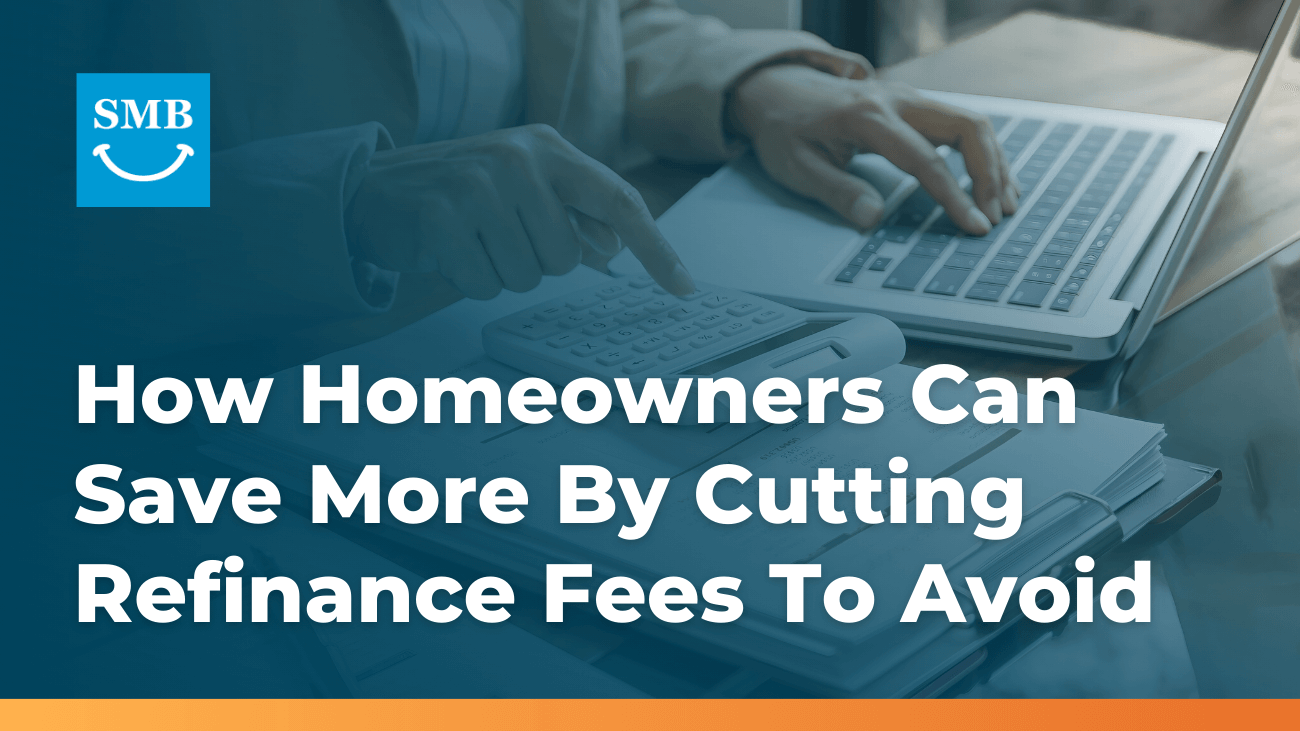
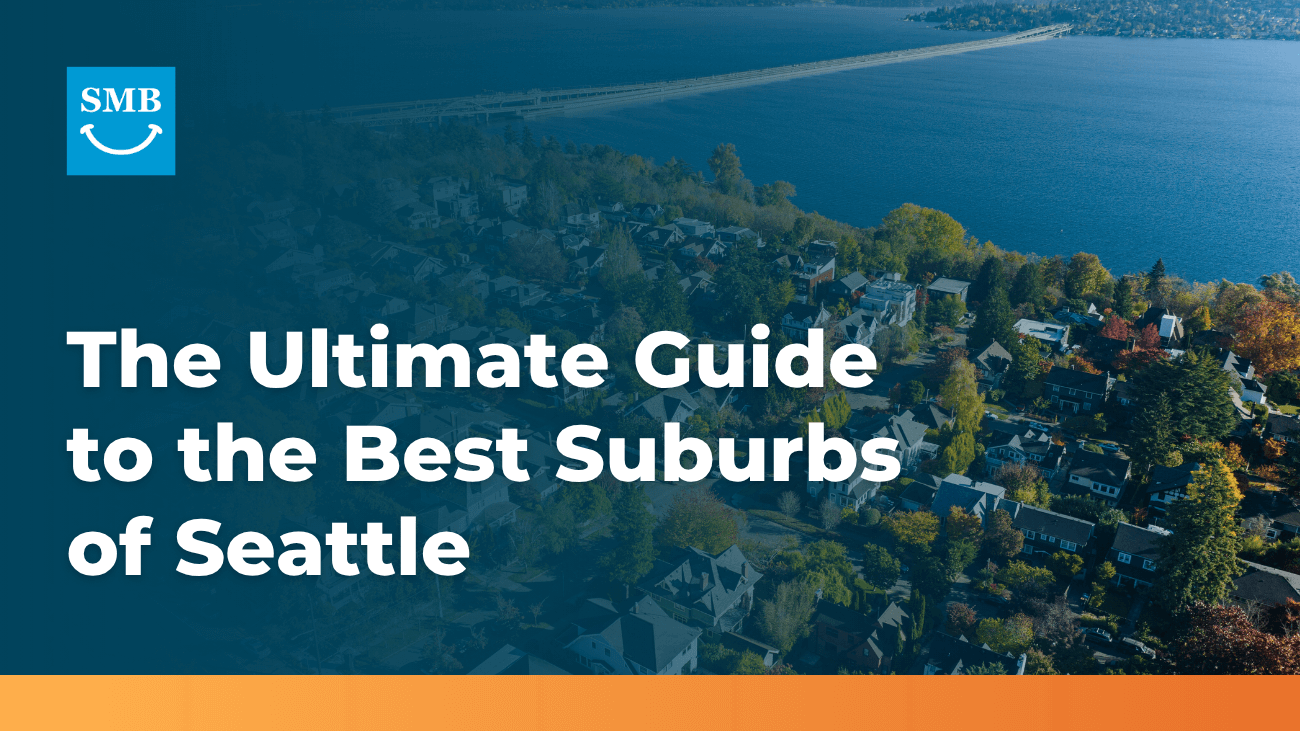
The Ultimate Guide to the Best Suburbs of Seattle
Should You Use a Mortgage Broker? Everything You Need to Know First
How to Find the Right Neighborhoods in Seattle for Your Budget and Lifestyle

Warrantable vs. Non-Warrantable Condos: What Every Buyer Needs to Know Before Financing

How Much Does It Cost to Refinance a Mortgage in Seattle? A Homeowner’s Guide
.png)
How Often Can You Refinance Your Home?
.png)
The Complete Guide to For Sale By Owner (FSBO) in Seattle

10 Questions Every Seattle First-Time Home Buyer Asks

What is a Non-Warrantable Condo?

Ultimate Seattle Mortgage Loan Documents Checklist
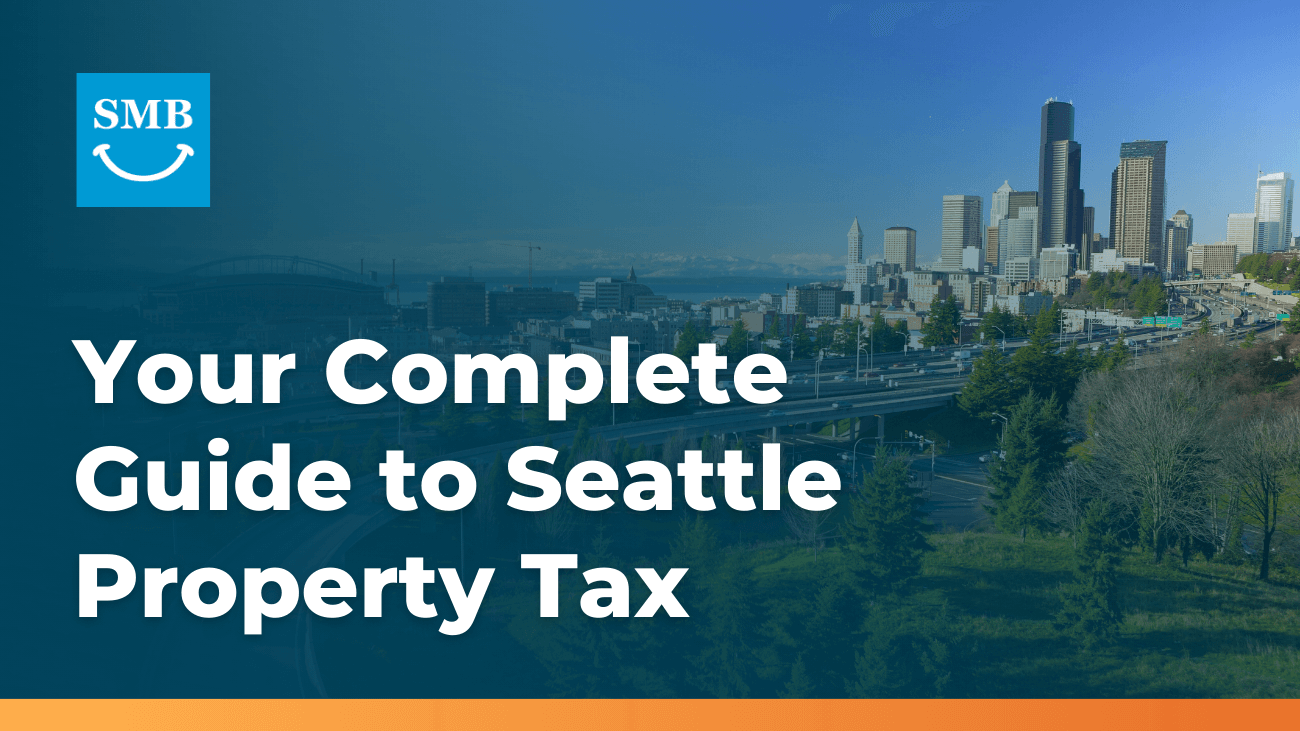
Your Complete Guide to Seattle Property Tax

Why You Should Work with a Mortgage Broker

Where to Find the Best Local Mortgage Broker

Where Are The Best Places To Live In Seattle?

What’s the Best Way to Save Money for a House in Seattle?

When is the Best Time to Refinance a Home?

What is the Jumbo Loan Limit in Seattle 2020?

What You Need to Buy a House in Seattle

What Is a Jumbo Loan and will you need one when moving to Seattle?

What is the Jumbo Loan Limit in Seattle?

What Is A Non-Warrantable Condo?

What is the Best Down Payment Amount on a House in Seattle?

What is PMI Mortgage Insurance? And Why It Is Not As Bad As You Think

What Is A Cash-Out Refinance?

What do Home Loan Underwriters Look For?

What Down Payment Do I Need for a House?

What Are The Costs of Buying a Home?

What Are The Best Neighborhoods In Seattle For Families?

FAQ: What Are the VA Home Loan Requirements?

WEST SEATTLE JUNCTION ; Seattle Neighborhood Tour

What are RSUs and How to Spend Them

Understanding Mortgage Down Payments

Top 5 Seattle Suburbs to Buy In 2021

Understanding Down Payments in Seattle

The Ultimate Mortgage Document Checklist

Top 10 Questions To Ask A Mortgage Broker (Before You Commit)

The Worst First-Time Homebuyer Mistakes

The Top 5 Seattle Suburbs for 2020

The Best Seattle Neighborhoods in 2020

How to Find the Best Mortgage Refinance Companies in Seattle

The Best Seattle Neighborhoods for Families

The Best Neighborhoods in Seattle to Buy a Home

The 7 Best Seattle Suburbs for Families

Seattle Neighborhood Guide: The Top 10 Most Affordable Places To Live In Seattle

SOUTH LAKE UNION ; Seattle Neighborhood Tour

Seattle Summer Housing Market Guide 2020

Seattle Housing Market Update 2020

Seattle Housing Market Hacks

Save Money When Buying a House in Seattle

Save Money on Your Mortgage Refinance

Moving to Seattle with a Family? Here's the BEST Suburbs For You!

Refinancing To Reduce Your Bills and Increase Available Cash

Neighborhoods in Seattle to Buy a Home 2020

Real Estate Trends in Seattle

Mortgage Down Payments in Seattle

MAGNOLIA ; Seattle Neighborhood Tour

Mistakes to Avoid with Cash-Out Refinance

How to Refinance Your Home in 9 Steps

Jumbo Loan Limit vs Conforming Loan Limit in Seattle for 2021

KIRKLAND ; Seattle Neighborhood Tour

Jumbo Loan Limit in Seattle for 2021

ISSAQUAH ; Seattle Neighborhood Tour

Is My Credit Score Good Enough to Buy a House?

How to Buy a House; Home Buying 101

How to Lower Your Monthly Mortgage Payment

How to Get the Best Rate for Your Home Loan

How to Buy a House for Less

How Much Home Can I Buy in Seattle?
How Much Do You Really Need for a Down Payment in Seattle?

How Much Home Can I Afford?

Home Price Forecast for Seattle 2020

How Hot is the Seattle Real Estate Market?

How Hot is the Seattle Real Estate Market in 2022?

Home Inspection Questions You Need to Ask

Do You Need a Realtor to Buy a House in Seattle?

FHA vs. Conventional Loan: Which Mortgage Is Right for You?

Find the Best Mortgage Lender for Your Home Loan

Federal Housing Administration Loans 2021

Down Payment Requirements in Seattle

FACTORIA and SOMERSET ; Bellevue Neighborhood Tour

Everything you Need to Know About Seattle Jumbo Mortgages

Everything You Need to Know About VA Loans

Advice To A First Time Home Buyer: Down Payment Assistance Programs Exist for Millennials

CROSSROADS ; Bellevue Neighborhood Tour

Down Payment 101: How Much Money Do I Need to Buy a House?

COVID-19 Mortgage Help for Homeowners

Comparing ARM vs. Fixed Rate Mortgage

Can I Afford To Buy A Home In Seattle?

Choosing the Best Lenders for Home Loans
How to Use Restricted Stock Units to Buy a Home in Seattle

ARM v. Fixed Mortgage: Which is Right For You?

Ballard or Queen Anne? The Best Neighborhoods of Seattle to Buy a House

Avoiding the Worst Seattle Mortgage Lenders

Are You Buying a House in Seattle? Here’s the Ultimate Survival Guide
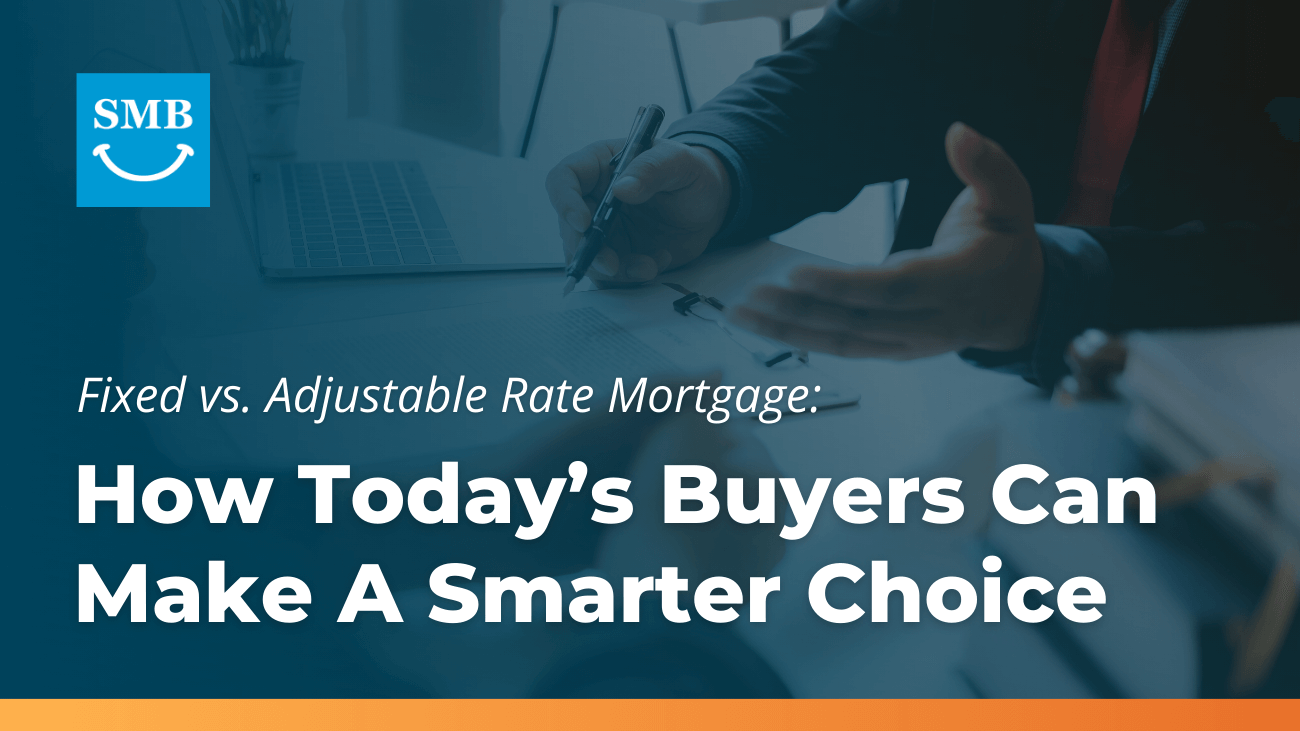
Fixed vs. Adjustable Rate Mortgage: How Today’s Buyers Can Make A Smarter Choice

ALKI BEACH ;; A Seattle Neighborhood Tour

A Complete Guide to Refinancing Your Home Loan

8 Ways to Lower Your Mortgage Payment


















